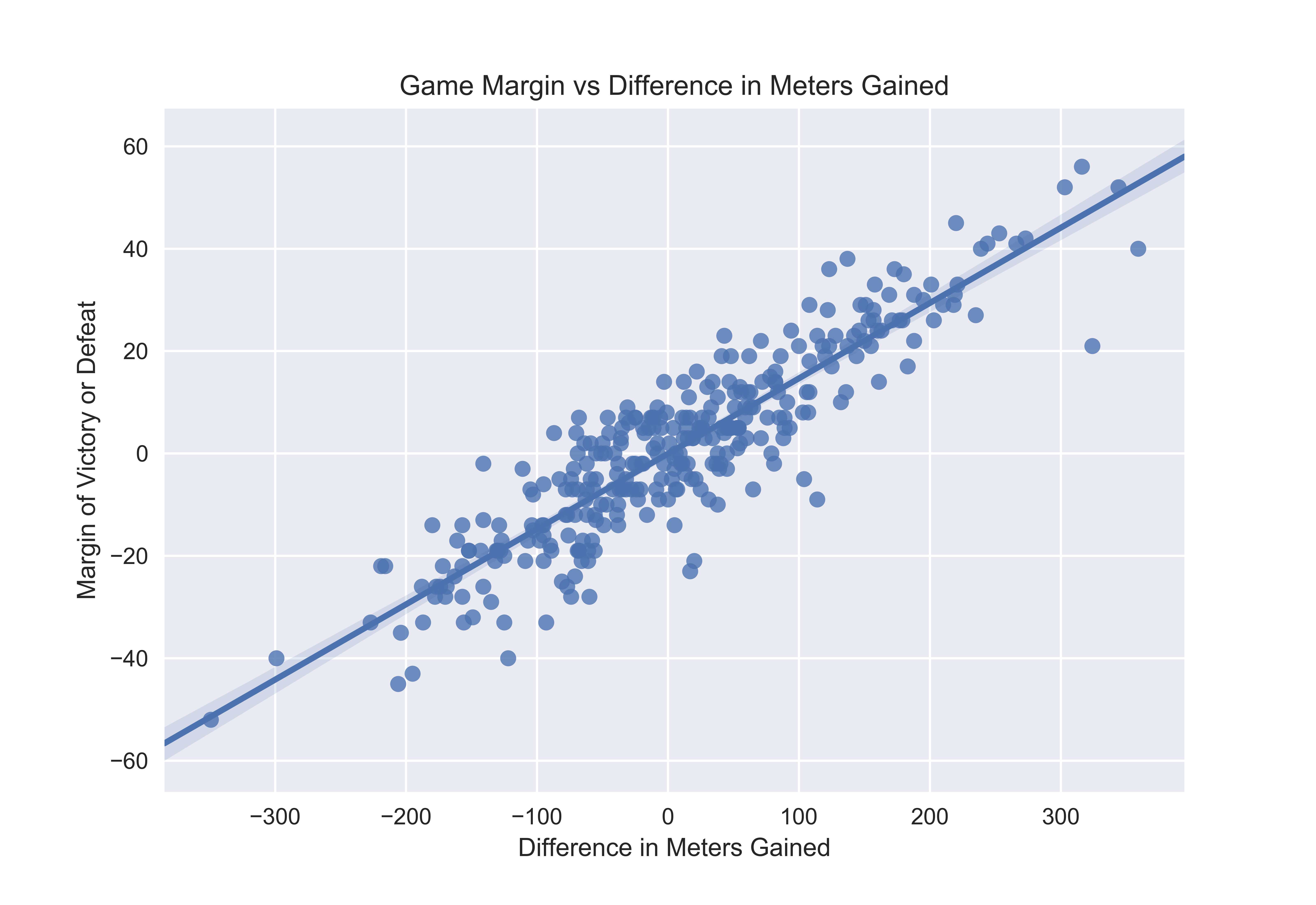In yesterday’s post I showed each team’s season long trends for meters gained and conceded by game. As an introduction to considering the application of meters gained, I broadly mentioned how gaining meters is good for a team. This makes sense and still holds true but to illustrate this statement I created the plot below.

The chart plots each game’s difference in final score as it relates to the game’s difference in meters gained. The relationship is clear, the more meters a team outgains their opponent by, the more points that team should win by. Outgaining your opponent doesn’t guarantee victory but the R² is .81 and nearly every team that gained more than 100 meters than their opponent has won the game.
Perhaps the concept isn’t incredibly enlightening to you. But seeing the data lets us know a few things. First, from a stat-taking perspective, it’s clear that tracking meters gained is worthwhile. Measuring meters gained from certain game situations could even help evaluate the success of set pieces, individual players, or tactical changes.
Second, the slope of the regression line, around .147, tells us what to expect from gaining meters. So for every meter a team outgains their opponent, you’d expect an additional .147 points on the scoreboard. For example, if you outgain your opponent by 100 meters, you’d expect to win by 14 to 15 points.
Knowing that expectation can guide decision making. If a team is outgaining their opponents but losing, they may be the victim of some bad luck. That bad luck could come in the form of turnovers near either tryline or some uncharacteristic missed conversions. A team could easily lose their two Sunday matches while outgaining their opponent, and without the above knowledge the coach may deem the tournament a failure and make knee-jerk changes. Whereas if they continue to play as they did, and continue to outgain their opponents, in the long run the team will be successful and win similar games in the future.
I should make it clear that “bad luck” events do matter and definitely affect the outcome of the game they occur in. But there’s a good chance these events are not as indicative of future results as other metrics, such as meters gained.